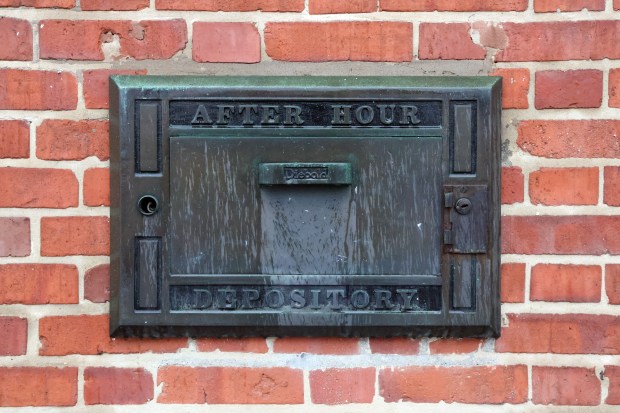The vacant former Stock Yards National Bank building near the historic site of the Union Stock Yards on the South Side will become an $80 million recording complex under a new renovation proposal selected by the Chicago Department of Planning and Development.
Chicago nonprofit Third Coast Music envisions transforming the landmark building at 4120 S. Halsted St., acquired by the city in 2000, into the centerpiece of a “scoring stage” complex where musical ensembles of up to 100 people could record, with additional spaces for postproduction, special events, a cafe and a Chicago music museum.
It was one of two pitches received by planners after they issued in 2023 a request for proposals to redevelop the property, including an adjacent 1-acre vacant lot.
Third Coast Music, a charitable and educational organization that prepares students and adults for music careers, wants to transform the 45,000-square-foot bank, a replica of Philadelphia’s Independence Hall, into event space, classrooms and the museum. A new, 31,700-square-foot building with an 8,000-square-foot studio would be used for recording and postproduction.
The 1925 building once stood at the heart of Chicago’s meatpacking industry, serving many employees of the Union Stock Yards. But the meatpackers began relocating in the 1950s, and both the stockyards and bank were shuttered by 1971. By the time the city bought the building in 2000, it was a smelly ruin, filled with paint cans, kitchen sinks, smashed TVs and pigeons. The building was recently repaired by the city.
Third Coast Music will seek grants and donations to help pay for the project, along with conventional loans and public assistance, although the exact mix of financing hasn’t been determined, according to city planners.
There is a long way to go before the nonprofit can break ground. The plan needs a green light from the Chicago Plan Commission followed by the full City Council. Any financial assistance from the city will require separate approval, and if Third Coast Music seeks tax increment financing, they would also need to go before the Community Development Commission.
“Since the bank is a landmark, the proposed work would also need review by the Landmarks Commission,” said Department of Planning and Development Deputy Commissioner Peter Strazzabosco.



